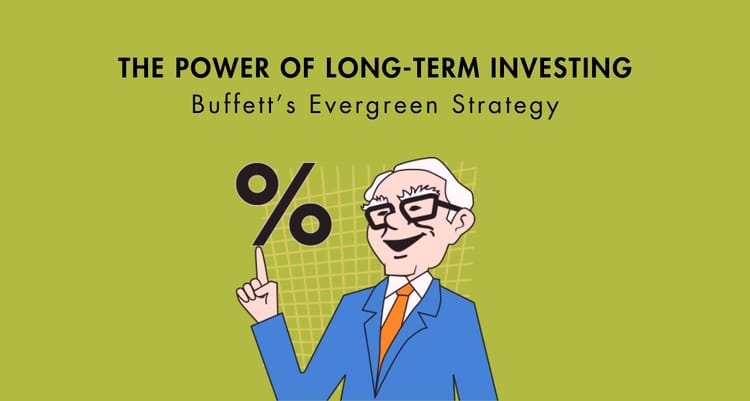Understanding Stock Market Psychology: Predictive Insights and Investment Strategies

In the fast-paced world of investing, grasping the concept of stock market psychology is essential for making well-informed decisions and accurate predictions. Stock market psychology refers to the collective emotions, sentiments, and behaviors of investors that influence stock prices and market trends. By understanding the nuances of stock market psychology, investors can gain valuable insights into market movements and improve their predictive abilities.
What is Stock Market Psychology?
Stock market psychology involves the wide range of emotions and behaviors exhibited by investors, such as fear, greed, optimism, pessimism, herd mentality, and risk aversion. These psychological factors drive market trends and contribute to price fluctuations beyond what fundamental valuations would suggest.
How Does It Impact Market Trends?
Stock market psychology plays a crucial role in shaping market trends, similar to a psychological chart that helps understand market phases like bull markets. During periods of optimism and bullish sentiment, investors show confidence and are more likely to buy, leading to rising prices. Conversely, during periods of fear or pessimism, investors may panic and sell, causing prices to drop. Recognizing these psychological shifts can help investors anticipate market trends and adjust their strategies accordingly.
Key Psychological Factors in the Stock Market
- Fear and Greed: These are fundamental drivers of stock market psychology. Fear can lead to selling pressure and market downturns, while greed can fuel buying frenzies and speculative bubbles.
- Herd Mentality: Investors often follow the crowd, leading to momentum trading and exaggerated market movements based on collective sentiment rather than underlying fundamentals.
- Confirmation Bias: Investors tend to seek information that confirms their existing beliefs or biases, potentially overlooking contradictory data that could impact investment decisions.
- Risk Aversion: During uncertain times, market participants may become risk-averse, preferring safe-haven assets or defensive stocks over higher-risk investments.
Using Stock Market Psychology to Predict Market Movements
Predicting market movements with absolute certainty is challenging, but insights into stock market psychology can enhance predictive capabilities. Technical analysis, combined with an understanding of psychological factors, can help identify potential trend reversals, market tops, bottoms, and sentiment shifts.
Real-Life Examples of Stock Market Psychology
- Dot-Com Bubble: In the late 1990s, excessive optimism and speculative buying fueled the dot-com bubble, leading to inflated stock prices of internet-related companies. The subsequent burst of the bubble showcased the impact of investor psychology on stock prices.
- COVID-19 Pandemic: The onset of the pandemic in 2020 triggered widespread fear and uncertainty, causing sharp market declines. Subsequent government interventions and positive news on vaccines led to a market recovery, highlighting the role of psychology in stock market rebounds.
Navigating Stock Market Psychology as an Investor
Recognizing the influence of stock market psychology is crucial for developing robust investment strategies. Strategies such as contrarian investing, value investing, and sentiment analysis leverage psychological insights to identify opportunities amid market fluctuations.
Stock market psychology is a powerful force that shapes market dynamics and influences investor behavior. By understanding the psychological factors driving market trends, investors can make more informed decisions, anticipate market movements, and navigate volatile conditions with greater confidence. Incorporating insights from stock market psychology into investment strategies can lead to better risk management and potential long-term investment success. Consulting with a financial advisor can further enhance this journey, making it easier to navigate the complexities of the stock market.
Frequently Asked Questions (FAQ)
1. What is stock market psychology?
Stock market psychology involves the collective emotions, sentiments, and behaviors of investors that influence stock prices and market trends. It encompasses factors such as fear, greed, optimism, pessimism, herd mentality, and risk aversion.
2. How does stock market psychology impact market trends?
Stock market psychology shapes market trends by influencing investor behavior. During periods of optimism and bullish sentiment, investors are more likely to buy, leading to rising prices. Conversely, during periods of fear or pessimism, investors may sell, causing prices to drop. Recognizing these psychological shifts can help anticipate market trends.
3. What are the key psychological factors in the stock market?
Key psychological factors include:
- Fear and Greed: Fear can lead to selling pressure and market downturns, while greed can fuel buying frenzies and speculative bubbles.
- Herd Mentality: Investors following the crowd can lead to momentum trading and exaggerated market movements.
- Confirmation Bias: Investors seeking information that confirms their beliefs may overlook contradictory data.
- Risk Aversion: During uncertain times, investors may prefer safe-haven assets or defensive stocks.
4. How can understanding stock market psychology help predict market movements?
While predicting market movements with absolute certainty is challenging, insights into stock market psychology can enhance predictive capabilities. Technical analysis combined with an understanding of psychological factors can help identify potential trend reversals, market tops, bottoms, and sentiment shifts.
5. Can you provide real-life examples of stock market psychology at work?
Examples include:
- Dot-Com Bubble: Excessive optimism and speculative buying in the late 1990s inflated stock prices of internet-related companies, leading to a bubble that eventually burst.
- COVID-19 Pandemic: The pandemic triggered widespread fear and market declines in 2020, followed by a recovery driven by government interventions and positive vaccine news, illustrating the role of psychology in market rebounds.
6. What investment strategies leverage stock market psychology?
Investment strategies that leverage psychological insights include:
- Contrarian Investing: Going against prevailing market trends by buying undervalued assets and selling overvalued ones.
- Value Investing: Focusing on fundamentally strong companies that are undervalued by the market.
- Sentiment Analysis: Analyzing market sentiment to identify potential investment opportunities.
7. How can investors navigate stock market psychology effectively?
Investors can navigate stock market psychology by:
- Recognizing and understanding the psychological factors driving market trends.
- Incorporating insights from stock market psychology into their investment strategies.
- Practicing disciplined investing and avoiding emotional decision-making.
- Consulting with a financial advisor to develop robust investment strategies and manage risks.
8. Why is it important to incorporate stock market psychology into investment strategies?
Incorporating stock market psychology into investment strategies can lead to better risk management, improved decision-making, and the potential for long-term investment success. Understanding the psychological forces at play helps investors anticipate market movements and navigate volatile conditions with greater confidence.
9. How can I start applying insights from stock market psychology to my investments?
To start applying insights from stock market psychology:
- Educate yourself on the psychological factors influencing the stock market.
- Develop investment strategies that leverage these insights, such as contrarian or value investing.
- Regularly review and adjust your investment portfolio based on market sentiment and psychological trends.
- Consider seeking advice from a financial advisor to enhance your investment approach.
10. How can I start investing with Fynocrat?
To start investing with Fynocrat, you can plan your investments with us. We offer personalized investment strategies and professional guidance to help you achieve your financial goals by leveraging insights from stock market psychology.






Member discussion